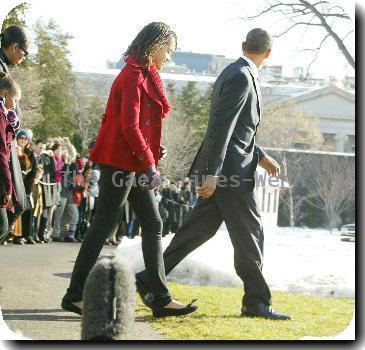NATO chief denies that Afghanistan’s reconciliation plan aims to “bribe” Taliban fighters
By Slobodan Lekic, APThursday, February 4, 2010
NATO chief: No plan to ‘bribe’ Taliban
ISTANBUL — NATO does not intend to bribe Taliban guerrillas to defect to the Afghan government side as a way to end the war, alliance Secretary-General Anders Fogh Rasmussen said Thursday, dismissing concerns over the latest plan to end the country’s growing insurgency.
His comments came amid a renewed push to make peace with moderate Taliban insurgents and draw them into the political process. The North Atlantic alliance has strongly backed an Afghan plan to bring the insurgents over to the government’s side.
On Wednesday, Afghan President Hamid Karzai visited Saudi Arabia, hoping the kingdom would help persuade Taliban militants to take part in a negotiated settlement to the war. Saudi Arabia has a unique relationship with the Taliban since it was one of the few countries to recognize its regime in Afghanistan before it was ousted in 2001.
In a post on the alliance’s Web site ahead of a two-day meeting of NATO defense ministers in Istanbul to open Thursday evening, Fogh Rasmussen said a new $140 million trust fund would offer insurgents an alternative to remaining with the Taliban.
“Much attention is on the new reconciliation and reintegration effort initiated by the Afghan government. Questions were raised if we are bribing the Taliban just to get peace,” he said. “I understand why this is a sensitive issue for many.”
He said many rank-and-file insurgents were not fighting against the government and international troops for religious and ideological reasons.
“They fight for the Taliban for small amounts of money to simply make a living or for other grievances,” he said. “What is on offer to them is the chance of a new life.”
Defense Secretary Robert Gates was expected during the NATO meetings this week to call on the alliance to send more trainers and mentors to Afghanistan. NATO allies have promised to send some 9,000 more troops in addition to the 30,000 U.S. troops that President Barack Obama has ordered to arrive by fall.
U.S. officials say more might be needed fill an estimated shortfall of 2,500 mentors and 1,500 trainers needed to train Afghan police and army.
“Everyone understands that the only way we’re going to see our troop (numbers) to go down is for Afghan capability go up,” a senior U.S. official told reporters. “So I think there’s a lot of understanding for it.”
The official demanded anonymity because he was not authorized to speak publicly.
Critics have noted that plans to persuade the Taliban to switch sides have existed for years, but these have generally been ineffective, attracting only the lowest-level fighters with no guarantees they wouldn’t return to the insurgency.
And despite those incentives, the insurgency has expanded steadily. In 2004, NATO estimated that fewer than 400 Taliban were left in Afghanistan. By last year, that figure had grown to about 25,000, with the latest estimates in early 2010 raising that number to nearly 30,000.
The near-doubling of the international forces since 2008 also does not seem to have affected the escalating rebellion. And the sharp upswing in allied casualties is threatening to further undermine waning public support for the war in Europe and America.
Sinan Ogan of the Turkish Center for International Relations and Strategic Analysis said the Taliban have significantly expanded their political network over the past six years. That and the guerrillas’ military successes makes it unlikely they will accept talks with the government unless their conditions — including the withdrawal of international troops — are met.
Still, even agreeing to sit at the table with Karzai’s representatives would be a major propaganda victory for the rebels, he said.
“Gaining any kind of legitimacy would make the Taliban even stronger,” Ogan said. “They would begin to dictate conditions to Karzai and to the West.”
Gates also was expected to call on NATO to restructure its budget to ensure that priorities are funded and waste is cut ahead of a security push this year in Afghanistan.
U.S. partners in the alliance are grappling with dwindling defense budgets due in large part to the global recession happening at the same time they are being called upon to widen their commitment to Afghanistan.
____
Associated Press correspondent Suzan Fraser in Istanbul and Associated Press writer Anne Flaherty contributed to this report.
Tags: Afghanistan, Asia, Barack Obama, Bribery, Central Asia, Europe, Geography, Graft And Conflicts Of Interest, Istanbul, Middle East, North America, Saudi Arabia, Turkey, United States, Western Europe

